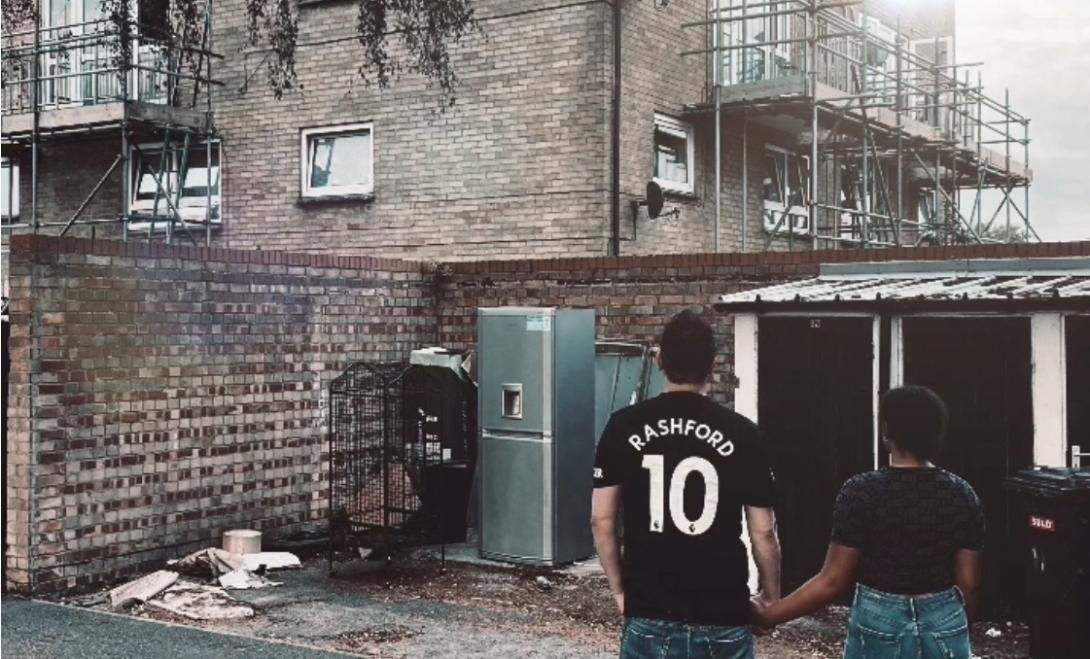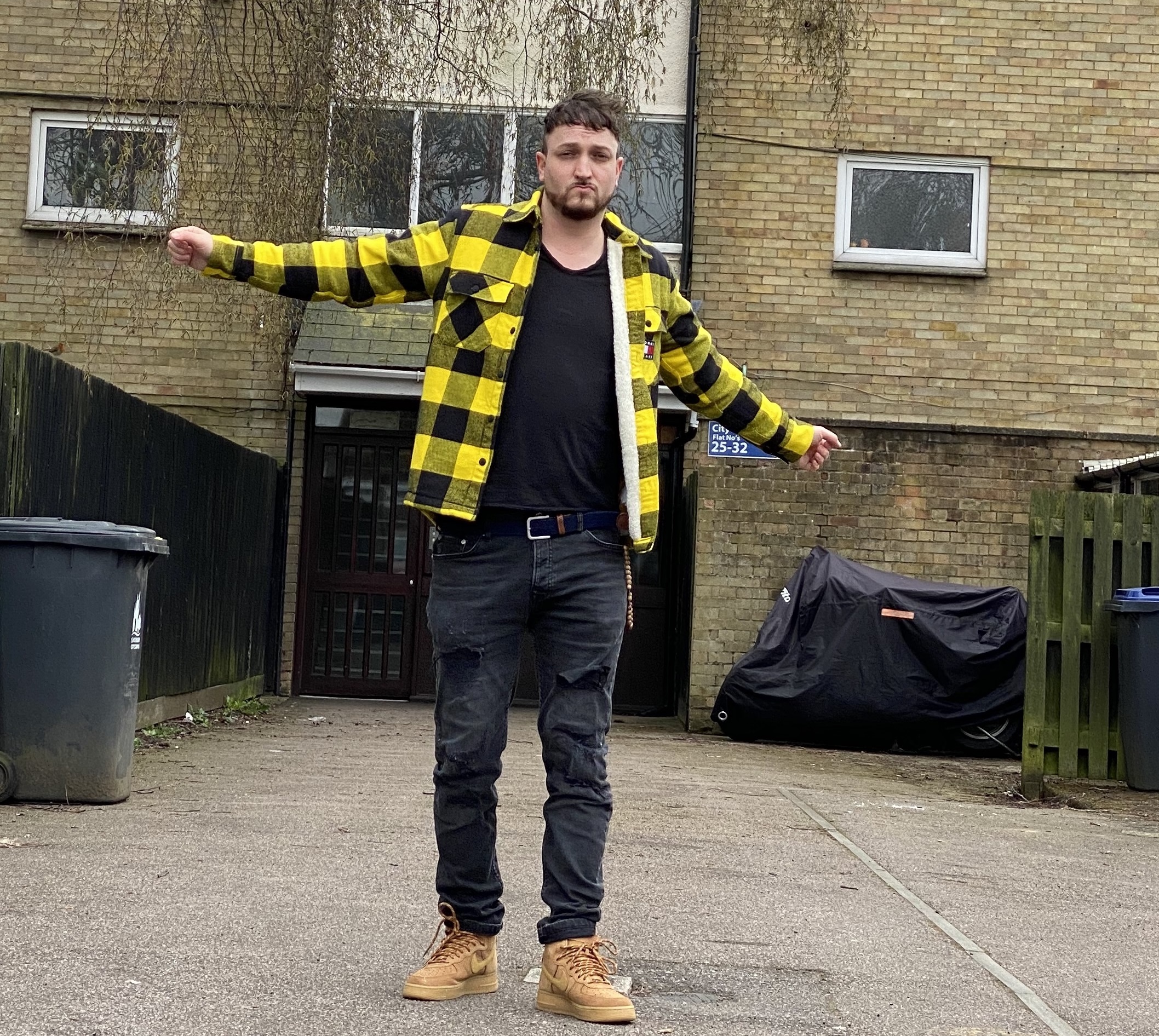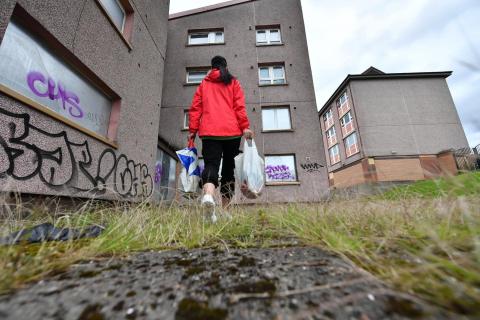29 April 2022
Breadline Voices: 'The poor have been in a cost of living crisis for years'

By Dominic Watters, Single dad, Kent
"This morning I receive notification of a £30 Free School Meal eVoucher. This is allocated for the Easter Holiday period and with it comes a sense of thanks but also desperation through knowing the limited foods this will afford my amazing daughter.
"I write as a single dad who has full residency for his child and who lives in a deprived council estate block that has for years both dimmed my horizons and formed my commitment to challenging social injustices.
"The uncertainty riddled existence that poverty inflicts upon you mirrors that feeling you get when you have left your home without your keys, but constantly.
"That’s the best way I can describe it. To live in food insecurity is to live with a sense of hunger and abandonment all the time.
"I welcome the surge in coverage about food poverty in somewhere as rich as the UK. It feels only like yesterday when there was a deep mistrust to food insecurity even being experienced in this country.
"When there was a broad sense that perhaps those in poverty were exaggerating. When the haves were mocking the have-nots by voting against extending free school meal vouchers and quoting the price of a bag of potatoes as being only 83p, (Annunziata Rees-Mogg).
"Massive salute to Marcus Rashford not only for getting our free school meal vouchers extended, but also for presenting an alternate vision.
"A vision that has instead demonstrated the nobility of single parents, often poor and in council estate blocks, by vitally challenging the shame and stigma that comes with relying on state provisions.
"I’ve been at family events with people who are meant to have your best interests at heart, where the confidence in denying any weight to the realities of poverty has left me in despair.
"This coupled with a feeling of being slighted by a world who’s capitalist systems view you as undeserving can make fighting for change feel hopeless.
"The cost of living crisis wont be experienced the same across society. In fact, the poor have already been in a cost of living crisis for years.
"A crisis that’s been filled with traumas like when your gas and electric runs out in the middle of the night and nowhere on the estate does top ups, and can’t leave as what if she wakes up and you’re not there, but how are you going to warm her breakfast in the morning.
"I’ve had nights where only my daughter has eaten, and I’ve had what she’s left over, if anything at all. And then to wake up to notices seeking possession of your home, together with the piss in the stairways, windows that don’t shut, the mould, the kitchen that isn’t fit for purpose, and the contempt raising any of these concerns is met with by the local authority.
"With this in mind, and at first glance, I am uncertain whether the Department for Education’s Schools White Paper even considers or attempts to tackle such issues poor children face in ‘reaching the full height of their potential’ as poverty is not mentioned once in the document, and ‘poor’, only in relation to attendance and behaviour.
"Now that my daughter is in secondary school I have began to build a career for myself in social work. Social Work that is responsible for caring for and improving the lives of the most disadvantaged children in the country.
"But even in a profession underpinned by anti-oppressive principles, the snobbery I have experienced has been displayed through a real reluctance to credit me with the ideas I have developed.
"Ideas that developed from the very disadvantages they talk about. Those established in the field of social work and social care are often afforded such a distant from the issues they are discussing they must not understand that I am addressing the inequalities we face every day.
"So when I say I am not writing about my lived experience, rather I am speaking about my ‘living experience’ (Watters, 2021) know that this conceptual development came about through not only years of on-going pain and hardship, but also through the here-and-now crippling effects of poverty.
"Therefore, to phrase this experience as only historic, is to deny the current urgency and tensions of this inequality. Yet, voices of poverty are rarely awarded any value, and when we are it’s at those in positions of power say-so.
"Food is more than what you eat. It represents factors of social class and systems that govern production, as well as the barriers you face to flourish in society.
"And I get that people may only want to hear about the hardships living in poverty causes regarding food, heating, and fuel. But I also want to highlight the deeper issues around social mobility that poor people face on so many levels.
"The level of being able to keep the lights on and your child fed before even getting to a lecture, and then if somehow you make it to where you can speak at influential professional spaces it would great if limitations weren’t put on the topics you are eligible to confront.
"And this is in the domain of a left presenting profession, like many, that encourages inclusion and diversity.
"In-saying-this I must acknowledge my position, as when you are living the inequality they are discussing it is hard not to take it personally.
This is part of Breadline Voices, a series from The Food Foundation highlighting the realities faced by millions of families plunged into food and fuel poverty as food prices reach a 40-year high.

Want to help? Please support our #FeedtheFuture campaign
Are you an MP? Click here for our latest briefing
Are you a food business? Click here for our latest report
Are you a journalist? Click here for our latest work




